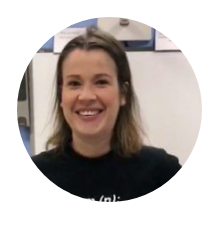TEACHER VOICE: Helping underserved students in Jamaica to learn, while learning a few lessons of my own
ByLaska Blodgett
Read the full article at The Hechinger Report >
In July, I worked in Jamaica, where I developed and led an educational summer camp for students from underprivileged backgrounds. The experience prompted me to see my role as a teacher in a whole new light.
Jamaicans bring a new meaning to community. Despite having access to fewer resources than many Americans, the people I met in this Caribbean island nation are committed to lifting one another up and collaborating to create an inclusive community designed to work for everyone.
I partnered with the Hanover Hope Foundation to identify how I could best put my teaching experience to use to further foster this sense of community. While I mapped out a curricular plan for summer camp, they were hard at work on the ground recruiting students and local volunteers as well as securing meal donations and facilities.
It helped to have the support of my principal at KIPP Academy: My school sent a huge box of books to help us get started. Together, we brought 120 students to our two week-long sessions.
Here are four lessons that I brought home with me:
1. Embrace the joy of learning. As teachers face the daily grind during the school year, we may forget one of the most important elements of education: having fun. The students I worked with this summer were engaged and excited by the opportunity before them. The camp opened their eyes to new possibilities, and I took the chance to joke and be silly. We played games like Math Olympics, in which groups of students worked together to solve math riddles and raced to come up with answers.
We broke into smaller groups to read books and articles aloud, and then had friendly debates about their meanings. Afternoons were devoted to conflict resolution and team-building activities that ended with recreational activities, like tie-dye or water balloons. Campers jumped at the chance to participate in the games because they were having fun and learning at the same time.
2. Empower your students. Children learn best when they assume responsibility for their own educations. It’s something we teach at KIPP every day, and my time in Jamaica only reinforced this concept. While we gave our students the tools they needed to be successful, we let them take themselves across the finish line.
By providing articles about current events and encouraging student-led games and debates, we watched students gain the confidence to use their own voices. One particularly shy boy stood out. He was reluctant to join in with the other campers. I watched his interest increase throughout team-building and group activities. By the end of the week, he was more engaged in the program, calling for the ball during Math Kickball and advising younger students.
3. Focus on the “whole child.” Immersing myself in a new culture this summer enabled me to get to know each of my campers personally and helped me steer their academic experiences in ways that worked for them. Every teacher should remember to ask his or her students: “What do you like to do? What do you want to be when you grow up?” When you learn about the individual passions that drive the “whole child,” you uncover novel ways to inspire and engage each student academically.
When thinking about educating the whole child, I instantly think of one camper who advocated for change. Initially, my plan was to divide the camp into four groups, to develop a sense of teamwork and friendly competition. I implemented the plan the first week, with one group being crowned the champion and winning water bottles.
One of the campers was upset about this and stressed that all participants should “win” a prize for participating. I entertained the camper’s idea because I wanted to build self-esteem and leadership skills. I asked her to meet with her fellow campers and come up with ideas for how the campers could earn points and rewards. The 11-year-old polled her peers and developed ideas for a reward system. By the second week, the competition design had changed and every group earned some form of a prize.
4. Be flexible. My summer in Jamaica humbled me. I was teaching students across a broad age spectrum with few educational resources at my disposal, and I had to think on my feet all the time. The volunteers I worked with, most of whom were 18- or 19-year-old Jamaican students, taught me that lesson best. When a guest speaker we’d invited to give a talk on bullying one afternoon failed to show up, I was scrambling. But the volunteers suggested we each give short talks based on our own experiences with bullies. We filled the rest of the time with the students creating their own skits, in which they stepped in to stop bullying where they saw it.
Spending a summer immersed in a new community made me even more motivated to apply these lessons, and refresh my own approach to teaching, here in the South Bronx.
I’m already working with the Hanover Hope Foundation to plan a second camp in Jamaica next summer, with the goal of enrolling even more students and continuing to soak up new perspectives.
Laska Blodgett is a third-grade teacher at KIPP Academy Elementary School in New York City.
